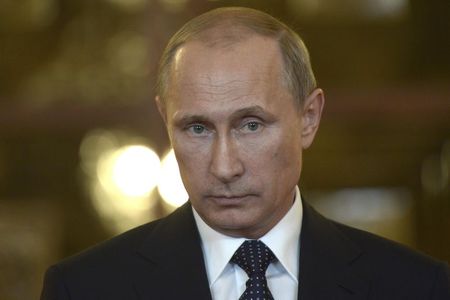Moody’s downgrades Senegal to Caa1 amid rising debt concerns
On Tuesday, Bernstein released a report detailing the complexities of tariff risks within the biopharma sector and its potential impact on major companies. The analysis aims to unravel the challenges posed by de-globalization and the strategic responses by companies to mitigate investment risks associated with tariffs.
The report focuses on a select group of companies covered by Bernstein, including Eli Lilly and Company (NYSE:LLY), Gilead Sciences (NASDAQ:GILD), Amgen (NASDAQ:AMGN), AbbVie (NYSE:ABBV), Merck (NSE:PROR) & Co. (NYSE:MRK), Pfizer (NYSE:PFE), Bristol Myers Squibb (NYSE:BMY), and Moderna (NASDAQ:MRNA). It also compares these companies to others in the industry, such as Johnson & Johnson (NYSE:JNJ), Novo Nordisk (NYSE:NVO), Sanofi (NASDAQ:SNY), GlaxoSmithKline (NYSE:GSK), AstraZeneca (NASDAQ:AZN), Novartis (NYSE:NVS), and Roche Holding AG (OTC:RHHVF) (OTCQX:RHHBY (OTC:RHHBY)), which are covered by different analysts.
The analysis identifies Merck and AbbVie, along with Novo Nordisk, Sanofi, and GlaxoSmithKline, as having the highest risk from tariffs due to significant imports and exposure to external manufacturing, which could lead to increased costs from transfer-pricing adjustments. Amgen, Pfizer, and AstraZeneca are also considered high risk, with substantial US revenue and imports subject to tariffs, although their imports predominantly come from external suppliers, which historically have incentives to minimize import costs. For investors seeking deeper insights, InvestingPro reveals Pfizer’s relatively low beta of 0.54, suggesting lower price volatility compared to the market, which could help offset some tariff-related risks. The platform offers comprehensive analysis of 1,400+ US stocks, including detailed risk metrics and Fair Value assessments.
On the other hand, Eli Lilly, Gilead Sciences, Bristol Myers Squibb, and Moderna, along with Johnson & Johnson, Novartis, and Roche, face moderate tariff risks. While not immune to tariffs, these companies may be more capable of managing the impact due to their operational structures and import sources.
In response to these tariffs, Bernstein suggests companies are likely to take actions that reduce globalization. These actions include renegotiating with external suppliers, adjusting transfer-pricing to balance tariff costs with tax implications, realigning internal manufacturing networks, and making strategic decisions regarding new manufacturing sites that favor local production to mitigate tariff impacts. The report emphasizes the importance of understanding the limitations of the available data when assessing the tariff risks for these companies. According to InvestingPro’s analysis, Pfizer maintains a "GOOD" Financial Health Score, suggesting strong operational resilience in the face of these challenges. The platform offers additional ProTips and detailed financial metrics to help investors navigate these complex market dynamics.
In other recent news, Pfizer is facing scrutiny as U.S. prosecutors investigate claims regarding the timing of its COVID-19 vaccine announcement, reportedly examining allegations that the company delayed revealing successful trial results until after the 2020 presidential election. The investigation, brought forth by British drugmaker GSK, involves statements from a former Pfizer scientist who denies making allegations of delay. Despite these developments, Citi analyst Geoff Meacham maintained a Neutral rating for Pfizer with a $27 price target, suggesting that the investigation is unlikely to significantly impact the company’s long-term prospects. Berenberg also reiterated a Hold rating for Pfizer, maintaining a $28 price target, while highlighting the company’s need to enhance its pipeline to counteract upcoming patent expirations.
Meanwhile, Moderna is experiencing uncertainty following the resignation of Dr. Peter Marks, the FDA’s top vaccine official, who played a crucial role in the regulatory process for vaccines. His departure raises concerns about potential implications for Moderna’s vaccine business, as Dr. Marks was a significant figure in vaccine development oversight. Additionally, several unnamed drugmakers are expediting shipments of medicines to the United States due to potential tariff threats from President Donald Trump, aiming to avoid disruptions in supply chains.
These recent developments reflect ongoing challenges and strategic maneuvers within the pharmaceutical industry, as companies like Pfizer and Moderna navigate regulatory changes and external pressures. Investors are closely monitoring these situations for their potential impact on the companies’ operations and market positions.
This article was generated with the support of AI and reviewed by an editor. For more information see our T&C.
